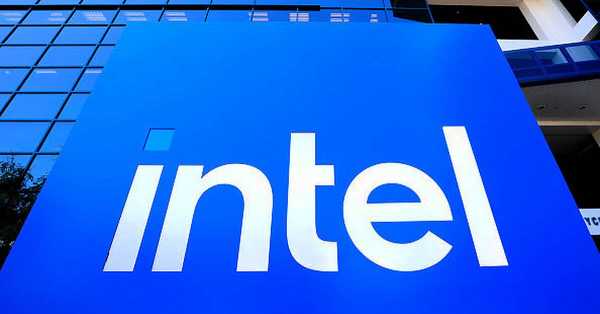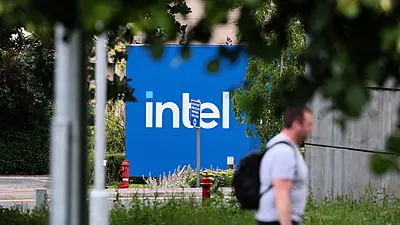
US President Donald Trump is sending about $9 billion (€7.7 billion) to Intel in exchange for a 9.9% stake in the company. But experts say the money, due to the troubled chipmaker under federal subsidy laws, will not sustain its contract semiconductor business.
Intel needs to attract third-party customers for its “breakthrough” 14A process technology, which is a major challenge, especially in the near term.
The company's CEO Lip Bu Than, who took over the company in March, said in a recent statement that the contract chip manufacturing business could be wound down without major customer contracts. “Our future investment in the Intel 14A platform will be contingent on confirmed customer commitments,” he said.
Summit Insights analyst Kinngai Chan echoed the economic logic of Tan's statement: “Intel needs to secure sufficient order volumes to launch 18A and 14A nodes for their foundry segment to become profitable,” the expert explained, referring to the company's manufacturing capacity.
“Government influence will not be able to change the fate of the division if it does not attract the necessary number of clients.”
Intel employs around 5,000 people in Ireland, primarily in Leixlip, County Kildare.
Since 1989, the company has become the region's most important employer, gradually turning its site into a central production hub for Europe.
Around 200 jobs are planned for redundancy at the Leixlip plant this autumn as part of a major restructuring.
Once a symbol of American technological superiority in microelectronics, Intel, due to years of management miscalculations, has lost its leadership to Taiwan's TSMC and the competition in the AI chip segment to Nvidia.
In a tough spot, Intel must demonstrate its ability to make innovative chips to attract partners. Its current 18A process, less advanced than 14A, is plagued by low yields, a key measure of manufacturing efficiency, according to Reuters.
Major manufacturers including TSMC offset the costs of lower upfront yields by working with customers like Apple. But for Intel, which has posted six straight quarters of losses, those costs threaten future profitability.
“With low yields, new customers will not cooperate with Intel Foundry, which will not solve the company's technology problems,” said Ryuta Makino, an analyst at Gabelli Funds, which owns shares of the company.
While Makino believes Intel will achieve optimal production levels in the long run, he views the current deal as a negative compared to the initial promises of support under the CHIPS Act.
“These funds cannot be considered free,” the expert emphasized.
Under the terms of the agreement, the federal government will not have a seat on the board but will coordinate with the board on key corporate issues. The agreement provides for a “narrow list of exceptions,” with the government acquiring shares at a 17.5% discount to the previous week’s closing price.
The stake would make the US administration Intel's largest shareholder, although the exact timing of the deal's completion has not been disclosed.
The company's shares rose 5.5% on the government investment news but fell 1% in over-the-counter trading after details of the deal were released. Shares have gained 23% since the start of the year as Tan announced a major workforce cut.
The investment was the latest example of unprecedented government intervention in the corporate sector, in line with the president's push to boost local manufacturing. The move followed Trump's criticism of Tang's ties to Chinese companies and calls for his resignation, which the president later backed down.
Experts do not rule out that Intel could benefit from government support, including expansion of production capacity.
The corporation announced plans to invest over $100 billion in the development of American factories, expecting to begin mass production of chips this year at a plant in Arizona.
“The key is access to capital and having a co-owner who is interested in your success,” said Peter Tooze of Chase Investment Counsel.
The $8.9 billion government investment comes on top of $2.2 billion in grants already received, bringing the total amount of support to $11.1 billion, Intel said.
The government will also receive a five-year option to buy an additional 5% of shares at $20 a share, which can be exercised if Intel's stake in the foundry business falls below 51%.

Trump Calls on Intel CEO to Resign Read More
“The government stake could be seen in two ways: as a sign of 'too big to fail' for Intel, but also raises concerns about corporate governance and shareholder priorities,” said Andy Lee, an analyst at CreditSights.
“The lack of additional funding… indicates a decline in the authorities’ willingness to provide further support.”
The investment follows a $2 billion round of funding from SoftBank announced this week.
“This is good for America and good for Intel. Advanced chip manufacturing is the foundation of technological sovereignty,” Trump said.
Sourse: breakingnews.ie






